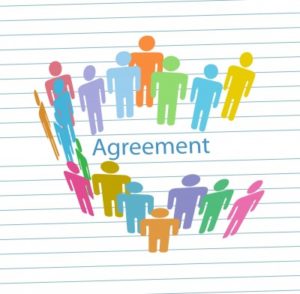Partner Compensation Structures, A Seven Part Series – The Monarch (1 of 7)
Partner compensation, Law firm compensation, Compensation structures, partner compensation structure, shareholder compensation, The Monarch Structure
If you didn't find what you were looking for, try a new search!
Partner compensation, Law firm compensation, Compensation structures, partner compensation structure, shareholder compensation, The Monarch Structure
 “We’re thinking about combining our firm of three lawyers with another small law firm. Do you have any guidance for us on what to consider in making our decision?” Clients ask me questions like this more frequently these days.
“We’re thinking about combining our firm of three lawyers with another small law firm. Do you have any guidance for us on what to consider in making our decision?” Clients ask me questions like this more frequently these days.
In some cases, a booming law practice has rainmakers looking for experienced help. Some senior lawyers in solo and small firms consider mergers as they begin thinking about succession planning. Sometimes young lawyers with developing practices seek to cut per capita overhead by spreading fixed costs across more fee earners. For some small firms, the merger mania in BigLaw has stimulated them to consider their options.
When contemplating a merger, many risks and rewards must be considered and due diligence investigations should be conducted. Culture clashes undermine mergers more frequently than any other factor, however.
When there are only 5 lawyers in the whole office, common values become even more critical. There is nowhere to hide. Variances in strongly held beliefs and values tend to grow from cracks to chasms. They can threaten the productivity, health and work satisfaction of everyone in the office, as well as the success of the firm as a whole.
Fortunately, with fewer people involved in a small firm, it can be a little easier to identify and discuss issues that may develop into rifts in a law firm partnership. Here are a few subjects to discuss.
1. What is your attitude toward money and the firm’s fiscal policy? Do you advocate leveraging debt to help the firm advance quickly and to weather dry spells? Or do you prefer a more conservative pay-as-you-go approach, relying on partners for any bridge loans required during slower periods? […]
The internet crawls with scam artists circulating myths, bogus horror stories, urban legends and snake oil sales pitches. I often use the Snopes website to verify or debunk any weird or cautionary emails I receive. According to a New York Times article about the Snopes founders, their fact-checking website gets around 8 million unique visitors per month. This time I didn’t need Snopes to verify the warning I received in a recent email. It came from our trustworthy IT consultant, Lee McAdory. Here’s what Lee wrote: […]
 A virtual paralegal relationship is not the solution for every solo or small firm attorney. After consulting with many prospective attorney-clients over the last 3 years, I’ve begun to recognize some repeating patterns. You may not be ready for a virtual paralegal relationship if several of these warning signs resonate: […]
A virtual paralegal relationship is not the solution for every solo or small firm attorney. After consulting with many prospective attorney-clients over the last 3 years, I’ve begun to recognize some repeating patterns. You may not be ready for a virtual paralegal relationship if several of these warning signs resonate: […]
By Tamara Portnoy
What an attorney really needs is a simple way to produce regular forms and frequently used documents which, of course, means; templates, templates, templates. Yes, there can be a learning curve to create truly useful templates but you only have to create them once. Then you just use them over and over. If something changes you only have to change it in one place. Using automatic dates, line and page numbering, internal referencing and table of contents make templates even more useful and accurate. Too often attorneys cannibalize documents and end up with something that says […]
 Most lawyers evolve as they develop experience. They learn from mistakes and from observing other lawyers. Although every lawyer is different, most go through some of the same predictable stages.
Most lawyers evolve as they develop experience. They learn from mistakes and from observing other lawyers. Although every lawyer is different, most go through some of the same predictable stages.
Conscious Incompetence
You’ve just graduated from law school and passed the bar. Whether it’s your first client or your first assignment from a partner, your excitement is mixed with anxiety. You’ve never done this before. You don’t really know what you are doing. You’re scared that someone will find out.
Unconscious Incompetence
You have some experience under your belt. You feel like you know what you’re doing. In fact, in some circumstances you actually do know what you’re doing, but you don’t know what you don’t know.
As a young lawyer negotiating agreements, I carefully examined every aspect of the proposed contract. I was trained in a prestigious firm that expected perfection from its lawyers. I sought to achieve a pristine document that gave my client maximal protection from every conceivable mishap. […]
 This week I had the privilege of participating in the virtual professionals round table discussion sponsored by The Paralegal Mentor. After hearing each other’s stories as to how we ended up as virtual professionals in the legal services industry, the discussion quickly turned to technology.
This week I had the privilege of participating in the virtual professionals round table discussion sponsored by The Paralegal Mentor. After hearing each other’s stories as to how we ended up as virtual professionals in the legal services industry, the discussion quickly turned to technology.
The very next day Law Technology News published the article Virtual Paralegals Move Legal Work Online. LTN’s news editor Brendan McKenna covered the bases by gathering information from at least 9 different paralegals, myself included, concerning the definition of virtual paralegal, inspiration for starting a virtual paralegal business, and the technology used. McKenna even registers the preference of several paralegals to be described as freelance rather than virtual.
Participation in both of these discussions with at least 12 other virtual paralegal professionals led me to the following conclusions: […]
By Tamara Portnoy
Attorneys avoid templates because they think templates are too hard to make and too hard to use. Templates that incorporate bookmarks are simple but have limited usefulness to a law office, especially with repeating content. When you have to type someone’s name over and over in a document bookmarks seem pointless. An alternative to bookmarks is document properties. Word documents come with a set of properties built-in but you can introduce more properties and use them to create template documents.
To view document properties choose: […]
 Jared Correia of LOMAP posted some important factors attorneys should consider in response to a question he frequently gets: Should solos use a smartphone as their primary telephone? He pointed out a number of concerns that the lawyer should address, including the ability to “wipe” a lost or stolen phone, and Plan B for practical issues such as dead zones and dead batteries, for a mobile lawyer.
Jared Correia of LOMAP posted some important factors attorneys should consider in response to a question he frequently gets: Should solos use a smartphone as their primary telephone? He pointed out a number of concerns that the lawyer should address, including the ability to “wipe” a lost or stolen phone, and Plan B for practical issues such as dead zones and dead batteries, for a mobile lawyer.
I would like to add another security issue that should be taken into account. All lawyers, including those who also have a regular land line at the office, should give some thought to this. More and more issues are surfacing about apps having unexpected access to data stored on or transmitted by smartphones. Today the Washington Post reported that “Sen. Chuck Schumer (D-N.Y.) has called on the FTC to investigate Apple and Google after reports that smartphone and tablet apps could pick up more data from consumer’s phones than they realize.”
 I previously blogged about the results one lawyer obtained when he promoted his law practice using Groupon. That post generated a number of informative comments which I recommend reading. Before rushing off to get an advisory opinion on the permissibility of daily deal advertising in your state, however, make sure you understand how the process works. A daily deal is essentially “loss leader” advertising, the success of which depends on selling additional services at full price at some point.
I previously blogged about the results one lawyer obtained when he promoted his law practice using Groupon. That post generated a number of informative comments which I recommend reading. Before rushing off to get an advisory opinion on the permissibility of daily deal advertising in your state, however, make sure you understand how the process works. A daily deal is essentially “loss leader” advertising, the success of which depends on selling additional services at full price at some point.
What Services Fit a Daily Deal? […]